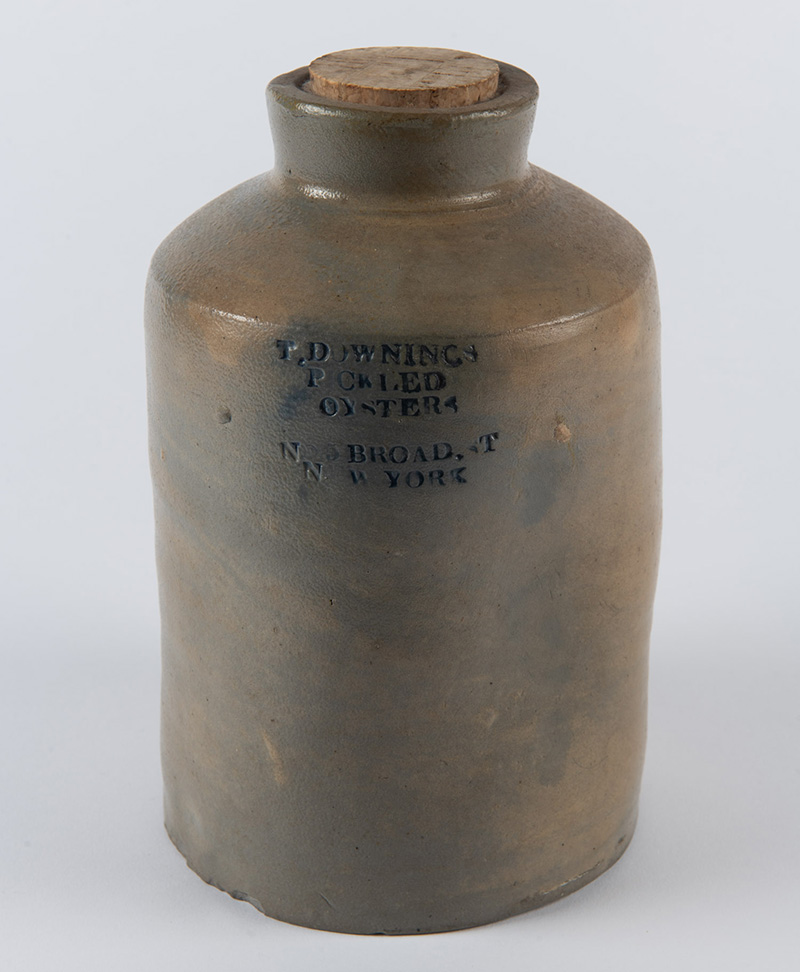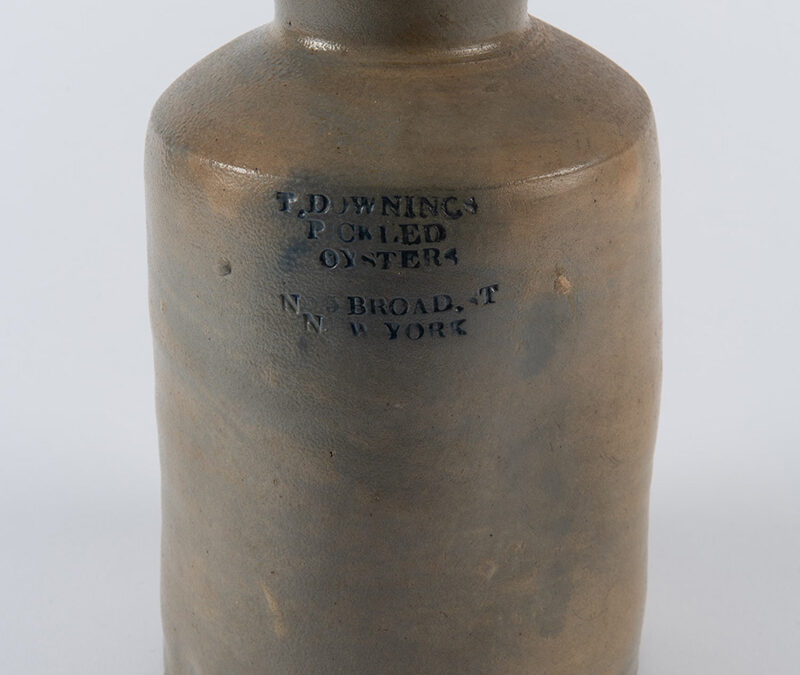
| Maker | Undetermined Maker (American) |
| Date of Creation | c. 1840 |
| Location | Used in Newport, Rhode Island |
| Materials | Ceramic |
| Institution | The Preservation Society of Newport County |
| Credit Line | Purchased by The Preservation Society of Newport County |
| Accession Number | 2022.3 |
| Photo Credit | The Preservation Society of Newport County |
This stoneware jar once held pickled oysters sold by the New York oyster house of Thomas Downing (1791–1866), an African American entrepreneur born to formerly enslaved parents who became a renowned restaurateur in New York City. The jar is cylindrical with tapered shoulders and a tall, narrow neck that flares out slightly at the lip. It has been brushed with cobalt highlights over impressed lettering that reads: “T. DOWNING’S / PICKLED OYSTERS / NO 5 BROAD ST / NEW YORK.” Downing’s oyster cellar on Broad Street, opened in the 1820s, was a favorite watering hole for New York’s elite businessmen and politicians. Downing also shipped a pickled variety of oysters nationwide and to customers in Europe, including Queen Victoria. Downing’s business turned the oyster from a humble snack into a respectable and highly fashionable food appropriate for upscale dining rooms. Downing was also an ardent abolitionist. He covertly used his oyster house as a stop on the Underground Railroad. He helped found the United Anti-Slavery Society of New York City and petitioned the state for Black male suffrage. Downing’s son, George Thomas Downing, later established a catering company in the fashionable summer colony of Newport on the model of his father’s oyster business and erected the Sea Girt Hotel on Newport’s Bellevue Avenue (1854), the first Black-owned luxury hotel in the United States. George Thomas Downing’s catering company offered New York oysters, probably sourced from the elder Downing. Although long overlooked by historians, Thomas Downing has been the focus of much scholarly and popular interest in recent years. His story features in the Netflix documentary High on the Hog: How African American Cuisine Transformed America (2021) and The Legacy Quilt (2022) by Harlem Needle Arts with illustrations by designer Adrian Franks.

